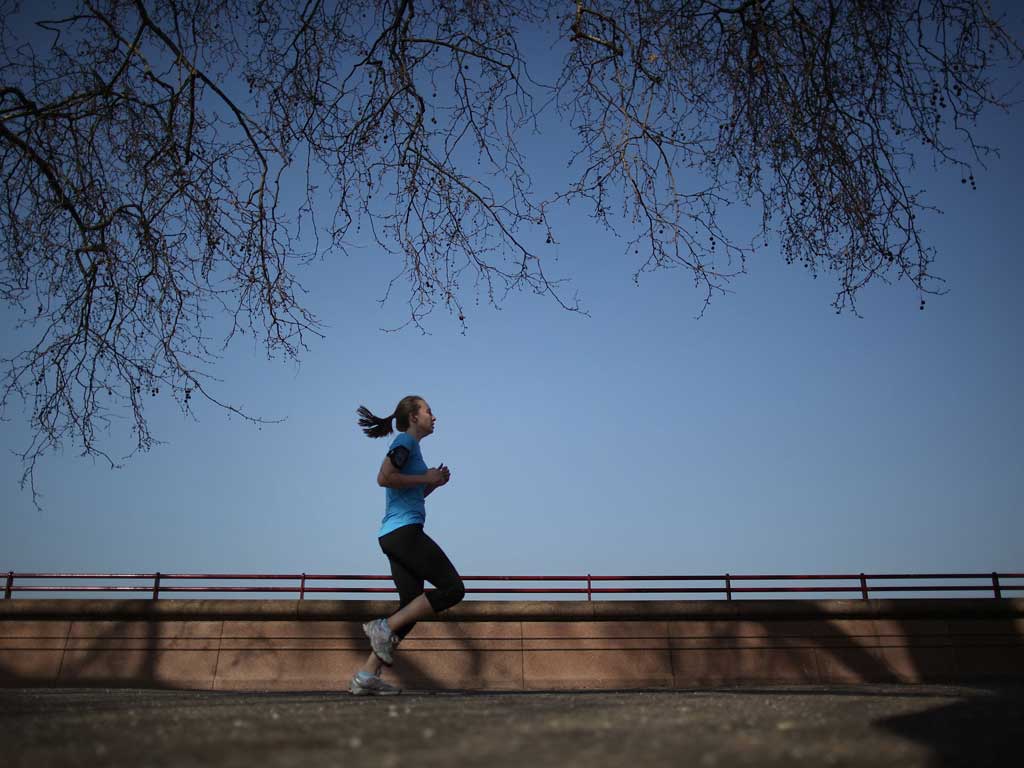Olympics fail to involve more people in sport
A promise to make Britons more active has been hit by funding cuts and the economic downturn

Your support helps us to tell the story
From reproductive rights to climate change to Big Tech, The Independent is on the ground when the story is developing. Whether it's investigating the financials of Elon Musk's pro-Trump PAC or producing our latest documentary, 'The A Word', which shines a light on the American women fighting for reproductive rights, we know how important it is to parse out the facts from the messaging.
At such a critical moment in US history, we need reporters on the ground. Your donation allows us to keep sending journalists to speak to both sides of the story.
The Independent is trusted by Americans across the entire political spectrum. And unlike many other quality news outlets, we choose not to lock Americans out of our reporting and analysis with paywalls. We believe quality journalism should be available to everyone, paid for by those who can afford it.
Your support makes all the difference.Promises that the Olympics would prompt a massive rise in people taking up sport have been left in tatters thanks to government cuts and the economic crisis, an academic working for the Government has revealed.
The number of people regularly taking part in sport has flatlined since 2008, which in December led the Government to abandon its target of one million more people in the country playing sport by 2013. Sport England asked researchers at Sheffield University to analyse why the hoped-for "Olympic effect" had failed to kick in.
Chris Gratton, professor of sport economics at Sheffield University, says he believes a failure to invest in campaigning is key to the failure of the Games to affect sport participation. "The money hasn't been there to invest in policies that create more participation," he said. "When there are government cuts, that's not going to happen. You're not seeing adverts on television saying, 'It's the Olympics this year, do more sport'. If you really want that effect, that's what you need to do, but that's not happening."
The economy is also to blame, according to Professor Gratton, who submitted a study to Sport England last week. "People's incomes have been frozen for three years and in real terms have gone down," he said. "We thought we'd have a more active population, and if we'd had the sort of economic times we had between 2000 and 2008, we probably would have."
Boosting the number of people actively playing sport was central to London's Olympic bid. Shortly after winning it, the Government pledged to get one million more adults playing sport by 2013. The target was calculated when sports participation was increasing steadily, but since then the number of people taking part in sport three times a week has stalled. Only four out of 23 funded sports had an increase in participants between 2007 and 2011, according to Sport England surveys, which counted people taking part in activities three times a week. In three major ones – football, swimming and tennis – the numbers fell.
Professor Gratton said: "It's a very clear drop-off from the levels achieved in 2007/08. There was a strong rise in participation from October 2005/06 to October 2007/08, but that very large rise was it. Since that date it's flatlined."
Expensive sports suffered the most, prompting some to take up cheaper options. "It seems that people are switching from things that take a lot of money to something cheap, like jogging," said Professor Gratton. "We looked at three expensive sports – skiing, sailing and golf – and there was a drop-off in participation."
Tim Lamb, chief executive of the Sport and Recreation Alliance, which represents community sports clubs across Britain, said: "There's no question, the original participation targets were a stretch, but there was a reason for that – and that was that organisers had promised the IOC it was what we would achieve. The defining feature of our bid was the legacy of participation a London Games would create and that was what won us the right to host the Games." Mr Lamb agreed that a lack of funding was partly to blame for the failure of the impending Games to encourage more sport. "The bigger the budget, the more you are likely to achieve. It's as simple as that," he said.
The alliance also believes restrictions on the Olympic logo are making it hard for local sports clubs to tap into enthusiasm. "The Olympic rings are so well protected that it is next to impossible for a grass-roots club to associate itself with 2012," said Mr Lamb. "That makes it difficult for communities to feel like the Games are actually reaching their doorstep."
A spokesman for Sport England said: "Well over 14.5 million people play sport at least once a week, and we want to make sure they continue to do so and help others to take up sport. We know that changing people's behaviours is challenging, particularly in a tough economic climate."
Join our commenting forum
Join thought-provoking conversations, follow other Independent readers and see their replies
0Comments